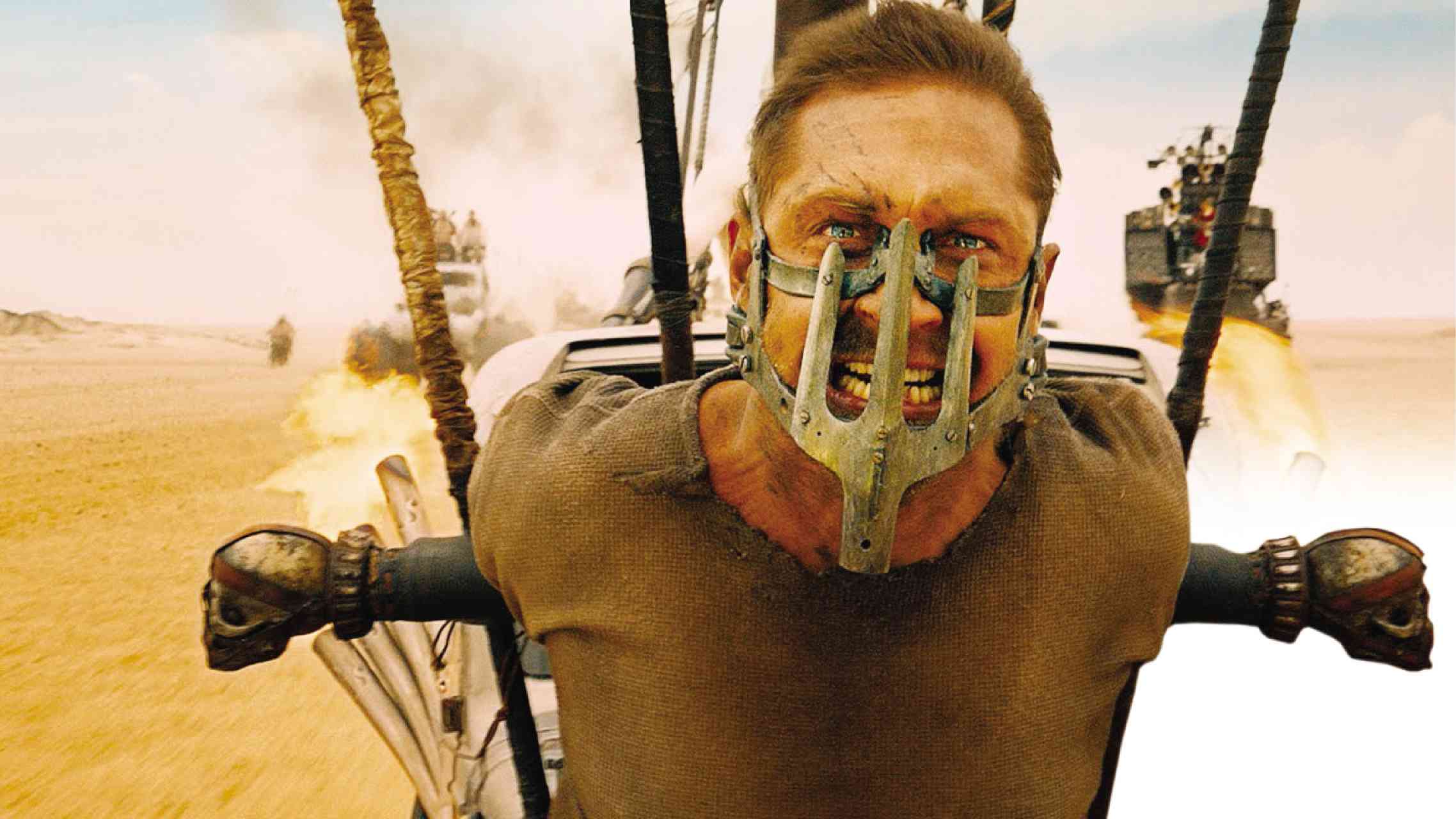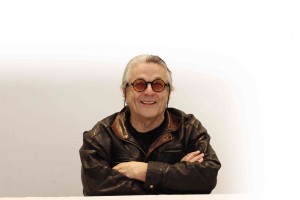
LIKE his predecessor, Tom Hardy is “a talented creature of the theater … and he’s lovable, too,” says his director.
LOS ANGELES—Will George Miller make more “Mad Max” films? In a recent interview, the director said that if “Mad Max: Fury Road” “does well enough” at the box office, he will consider making more of the post-apocalyptic movies.
Well, “Fury Road” has certainly done well, earnings-wise, but the Australian filmmaker set another condition: “If I have got the appetite to go back into the wasteland (laughs), I have other (‘Mad Max’) films I would love to make. We will see. But that’s entirely in the future.”
“We never set out to write a trilogy,” stressed George, a gentle-voiced, mild-mannered man, not quite what you’d expect from the director of a high-octane, slam-bang road war tale.
We can picture him more as a genial doctor, which he was for some time in Australia until he decided to become a full-time director.
“We wrote the story in the last millennium,” George said with a laugh in this chat at the Siren Studios on Sunset Boulevard in LA. He wrote, directed and produced this opus. “We started in 1999… But it took so long to make the movie. We started to write backstories that we ended up with other scripts that we didn’t intend to do.”
“None of that is being decided,” emphasized the son of Greek immigrants. “I am not even sure we will be doing those movies.” But now that “Road Fury” is universally acclaimed and a blockbuster as well, George must be developing an appetite to make “Mad Max: The Wasteland.”
At 70, George doesn’t plan to slow down anytime soon. “Whatever my body is like, I still feel like a kid in my head,” he declared with a grin. “I am driven by curiosity to make movies. Johnny Seale, the cameraman, came out of retirement to shoot this movie. He turned 70 during the filming. He was on top of and underneath the vehicles. He is one of Australia’s great camera operators.
“Guy Norris, who is the action unit director and the stunt coordinator, did his very last stunt on this movie, in the final car crash shot. He was 21 on the second ‘Mad Max.’ So it was like bringing the band back together again. I guess if the Rolling Stones can do it, we can be a little version.”
This rocking filmmaking band has made an action queen of Charlize Theron, who gives one of the best performances in her career as Imperator Furiosa.
Magnificent chase

GEORGE Miller was a doctor before making his directorial debut in the first “Mad Max” film. photo by Ruben V. Nepales
The actress’ one-armed rogue soldier gives “Fury Road” its cred as a feminist action film. Imperator Furiosa’s decision to free the five slave-wives of a tyrant, Immortan Joe (Hugh Keays-Byrne), sets off the magnificent road chase across the desert landscape.
George explained, “She had to be a full-fledged warrior. She needed to be the one to protect them. You couldn’t have a man taking five wives from another man. That would be a different story. It just arose out of that idea. And it developed more—we had a backstory about how she lost her arm.”
“Charlize is unmistakably a woman,” the Queensland native proudly said of the actress who was initially reluctant to take on the role. “She didn’t have to worry about whether she is going to be too butch or too tough. I am really proud of her work.”
As for his new Max, George shared his reaction when he first saw Tom Hardy as he considered him for the plum part. “When Tom walked in the room, he reminded me of Mel Gibson when he walked in the room 30 years before. Tom was six weeks old when we shot the first ‘Mad Max.’
“Mel and Tom are both extremely talented actors. They are both creatures of the theater. They are both very lovable and, at the same time, there is that quality of mystery or danger, which is a sense that we see in all the charismatic actors.
“Tom is a guy who is prepared to do any sort of role. He’s talking about doing Elton John. He’s just done the Kray twins. I have also seen him do (Charles) Bronson. I don’t know if anyone has seen a miniseries he did with Benedict Cumberbatch called ‘Stuart: A Life Backwards.’ ”
The filmmaker remarked that he was very impressed with Tom in this TV show.
“Mel was going to shoot the movie back in 2001,” George disclosed. “We were far from shooting. We hadn’t fully done all the deals yet. Then 9/11 happened. The American dollar had collapsed against the Australian dollar and the budget ballooned. We really cut the budget much more.”
George volunteered that Warner Brothers wanted him to direct “Happy Feet” instead. “The facility to do it was ready. We had the trigger on that one. And ‘Happy Feet’ almost took four years.” The movie earned him an Oscar for best animated feature film in 2007. This film, “Babe: Pig in the City,” “The Witches of Eastwick” and “Dead Calm” are among the movies that make up his eclectic filmography.
“So, by the time, we got it going again, Mel had all the turbulence in his life. The film wasn’t about an older Max.”
No Mel cameo
George explained why he nixed the idea of Mel making a cameo in “Fury Road”: “There was talk on the Internet about a cameo. But if we are trying to make people believe in this world in cinema, to have Mel appear, you would suddenly be pulled out of the movie. But we had Hugh Keays-Byrne, who was the toe cutter in the first movie. He dies at the climax of that movie.”
That first one, “Mad Max” in 1979, marked his feature directing debut. “Things have changed quite a lot,” he said of the film technology advances since the time when he cast a then-unknown Mel. “The cameras are much more flexible. You can have more cameras; they’re not as expensive. If a bit of a light stand or another camera happened to be in your shot, you can erase it now. So, all those things in small increments do influence things, like silly things.
Final chase
He revealed one very interesting trivia: “In ‘Mad Max 2,’ in the final chase where a door gets ripped off and Mel is driving, everyone is watching the door. But if you look at Mel, the truck driver is there between his legs, sitting there (laughs). He was there because it was an old truck and the gears were sticky. He had to help do the gear change.
“First of all, I didn’t see it for 10 years until someone brought it up. Second of all, we couldn’t have erased it. We could erase it now but we couldn’t back then.”
He added, “The big difference with the technology is that the cameras are smaller and cheaper. You can put them anywhere. If you smash a camera, you can go to the airport and buy another one. We did. We called them ‘trash cameras.’
“We had a wonderful instrument which I call the ‘edge arm.’ It’s a high-powered, four wheel drive with a massive crane on it with a camera. It’s got three guys on it, like a three-headed beast inside— the driver, a crane operator on little toggle switches, the camera operator, and me sitting with the monitor. That camera could go anywhere—on inches off the ground and into dust, on the vehicle, on the move.”
“I did feel like being in a live video game,” he pointed out with quiet glee. “I think that lent to the kinetic nature of the movie.”
Real crashes
But in a movie devoid of CG, where the crashes are for real, the director admitted, “The biggest thing was safety. When you see Max hanging upside down between the wheels of the big
SHOOTING his latest actioner felt like “being in a live video game,” George Miller recalls. photo by Ruben V. Nepales
war rig that’s hurtling along, and he is inches off the ground, that is Tom Hardy. If you turn your head upside down (laughs), you can see that is him. But he had two big, thick harnesses on him and a safety crew holding him. We can raise the harnesses more now than in the old days.
“This is a movie in which we don’t defy the laws of physics. There’s no flying men or spacecraft. It would be crazy to take real cars and real crashes and do them [in] CG. We took not only real vehicles but real people. We shot the movie almost in continuity.
“It’s difficult, though,” he conceded. “We were shooting for 135 days. Almost every day was a big stunt day. There were many stunts. When you are out there, with the heat and dust, fatigue sets in. My biggest anxiety was about safety. If something went wrong, it would go really wrong. But we had wonderful, really professional stunt crews, stunt riggers and special effects people with all the explosions.”
“I love action movies because they are a pure form of film language,” George said. “It was forged in those silent movies. Buster Keaton and so on, Mack Sennett, the two-reel Westerns, Harold Lloyd and so on. I started this movie thinking about what Alfred Hitchcock said, ‘I try to make movies where they don’t have to read the subtitles in Japan.’ He was talking about making pure cinema. That’s what we set out to do.”
With “Fury Road,” George has made pure cinema and more—he redefined the action film genre and set the bar so high.
Bravo, Mr. Miller!
(E-mail the columnist at rvnepales_5585@yahoo.com. Follow him at https://twitter.com/
nepalesruben.)

